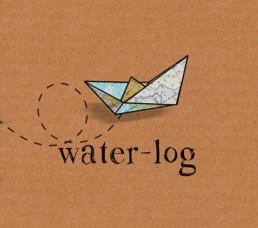Once the initial questions about storm avoidance and pirate dodging have come to an end we quite often find ourselves in conversations about how we can afford to sail the world.
There are countless useful articles and several helpful books that lay out various methods of funding all kinds of wistful landlubbers’ cruising ambitions. Many of these give detailed examples of how to manage businesses from abroad or perhaps work remotely. Or you can make a number of months’ seasonal or contract work in your home country refill the sailing kitty for a good year or two.
But the financial cost of cruising, so well documented elsewhere, is not my go-to response when probed as to how we meet the expense of liveaboard life. Because, what is far more fascinating, is how the very concepts of ‘worth’, ‘value’ and ‘cost’ can transform so dramatically thanks to time at sea.
The modern sailor, freshly casting off the docklines, quickly develops an appreciation for small and simple pleasures. The first humble meal made in a boat galley; a cold beer with an unpronounceable local name in a hot country; a visit from bottlenosed dolphins leaping and playing at your bow; the sweet taste of a bizarre, alien-looking fruit that resembles something from a Dr. Seuss children’s book, found at a local market; or perhaps the thrumming, syncopated tempo of exotic music that floats through the streets and spills out into the anchorage. The price of each of these prized moments is very low in monetary terms yet the profit to a boater’s sense of wellbeing far outweighs the expense.
Our ideas of luxury become removed from the currency of city life as our appetites and desires change. Being the only boat to drop the hook at a calm anchorage in only 3 metres of depth on a white-sand bottom climbs higher up the wish list than purchasing new clothes or objects. The thought of hot, running water becomes more of a lavish treat to be saved up for the next marina stop than an everyday normality. And yet the driving force, the winds that push and carry us on from place to place, country after country, are so fundamental to our way of life but cost nothing financially that you begin to equate free with freedom.
Then of course there is the pleasure of time. The wild extravagance of having the choice to linger and explore, to pause your cruising plans and read a book, to dawdle lazily up and down a particular coastline seeking out hidden bays to anchor in, all hint at a wealth of time that few can indulge in. Slinging up a hammock to doze in on deck is, I suppose, has its urban equivalent in the weekend lie-in; while taking the time to chat and swap stories with native fishermen who paddle out to your yacht in their canoes is comparable to conversations with the folks in your local pub back home. The difference here is the sheer volume and frequency of these moments and interactions that you can only give in to when you have a real abundance of time.
But, of course, there is a pay-off that also demonstrates itself in ways that are not purely fiscal. Our two young children, both born en route, are fast approaching 3 and 5 years old. The distance between us and our extended family is most acutely felt during these first years when the little ones change and grow so quickly and it’s a hardship that isn’t lost on us. After seven years of full-time cruising our absences at birthdays and Christmases has become a familiar ache. However, the other side of that coin is that when we get visitors flying out to us for a few weeks at a time, we get the rare treat of real quality time with them as opposed to the snatched hours or crowded special occasions that our London life would afford our families.
Because much like a British holidaymaker in his caravan, or a snail in it’s shell, the long-term sailor has learned that the modest opulence of travelling in his own accommodation is the key to having time to play with: as you never need rush back home when your home journeys along with you.
I think that it’s important to continue to be aware of how fortunate we sailors are to be able to travel where we choose, to play at living in this country or that, to always be at home on the move.
Yes, we are rich, in non-economic ways.
